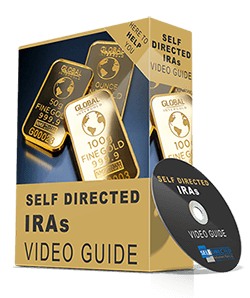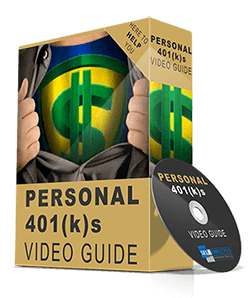Have you ever daydreamed about your golden years? You know, lounging by the beach, enjoying your favorite book, and living life on your terms? Well, those dreams can actually become your reality through a well-funded retirement savings plan—and that plan often involves 401(k) compound interest.
Just what is this magical 401(k) you ask? It’s a type of employer-sponsored retirement savings plan that allows you to put aside a portion of your paycheck before taxes. And if you want to unlock the true potential of that 401(k), understanding the power of compound interest is absolutely essential.
Why is compound interest such a big deal for retirement savings? Simply put, it’s the secret sauce that can turn a modest nest egg into a solid pension over time.
This blog not only delves into the nuts and bolts of compound interest in 401(k), but it also shows you how to make informed decisions that allow your money to work harder for you as you strive for financial independence.
What is Compound Interest?
Before we dive into how it works within a 401(k), let’s break down what compound interest actually is. In simple terms, compound interest is the interest earned on both the initial principal and the interest that has been added to it. This means that your money grows significantly over time.
To illustrate, if you have $1,000 and earn an interest rate of 5%, you’ll make $50 after the first year. But in the second year, you’ll earn interest not just on the initial $1,000, but also on the $50 you gained in the first year.
As such, your total at the end of the second year will be $1,102.50! The key takeaway here? Your money, through compound interest, can grow faster than you might think!
How Does Compound Interest Work in 401(k)?
-
The Power of Time
Perhaps the most potent variable in compound interest is time. Your money has more time to grow the earlier you begin saving. With given time, even modest contributions can add up to bigger savings. Your initial investment and the money that builds on it actually have more time to grow with every year that goes by.
-
Earnings and Contributions
Your retirement funds reach maximum potential based on your 401(k) contributions. Over time, your investment will yield more as you contribute more. Most importantly, when your employer matches your contributions, that’s essentially free money meant to stimulate your savings. With the right investment strategy, you can harness compound interest in 401(k) to exponentially grow your retirement fund.
-
The Significance of Regularity
When it comes to optimizing the advantages of compound interest, consistency is essential. Even though it may seem like a tiny amount, making regular contributions to your 401(k) plan can have a big impact in the long run. Establish an automatic rule that treats your 401(k) contributions with the same importance as bills that must be paid.
Example of Compound Interest in 401(k): The Tale of Two Savers
Let’s take a closer look using a realistic example that emphasizes the importance of getting started early.
Consider two individuals: Person A and Person B.
- Person A starts investing at age 25, contributing $5,000 annually for 40 years at an average return of 7%. By retirement at age 65, they have amassed about $1.1 million.
- Person B, however, starts investing at age 35, contributing the same amount annually for 30 years. By retirement at age 65, they can expect roughly $540,000.
What’s the takeaway here? The ten-year head start allows Person A to accumulate nearly double the savings of Person B – all thanks to the magic of compound interest! This example powerfully illustrates how a little time can generate phenomenal results.
How Can You Maximize 401(k) Compound Interest?
Ready to make the most of your 401(k) contributions? Here are some actionable strategies.
-
Begin Saving Money Early
Don’t wait for the ideal moment to begin saving money. Start as soon as you can! You benefit more from compound interest if you start early.
-
Leverage Employer Matching
This is a fantastic opportunity as many firms provide a matching contribution option for your 401(k). To optimize your possible savings, if your employer matches contributions up to a specific percentage, make at least that amount.
-
Boost Contributions Gradually
Make it a priority to progressively boost your 401(k) contributions as your income rises. In addition to increasing your retirement funds, this helps you maintain the regular saving habit.
-
Vary Your Investments
Diversifying your investments can help you balance risk and reward. A well-diversified portfolio allows your money to weather the ups and downs of the market, ultimately benefiting from compounding over time.
-
Avoid Early Withdrawals
Withdrawal penalties can eat into your hard-earned savings and derail your long-term growth. Keep your money invested so it can continue to grow through compound interest.
Maximizing your 401(k) growth is not just about understanding compound interest—it’s about actively participating in the journey toward a secure retirement. By starting early, taking full advantage of employer contributions, and consistently growing your investments, you set yourself on a course for financial independence.
So, what are you waiting for? Begin optimizing your contributions today and unlock the magic of 401 (k) compound interest for a prosperous future! Remember, every little add-on counts, and your future self will thank you for it.
Maximize your 401(k) potential today!
Contact Self-directed Retirement Plans LLC and discover the power of compound interest.
FAQs
What occurs if I cease making contributions to my 401(k)?
Your current amount will keep increasing through compound interest even if you stop making contributions. You will, however, lose out on further growth from employer matching and new contributions.
Is it possible for market fluctuations to cause me to lose money in a 401(k)?
Yes, market downturns can result in short-term losses for your investments. Nonetheless, a diverse portfolio usually recovers and expands over time by leveraging compound interest.
In order to optimize compound interest in 401(k), how much should I contribute?
To receive the maximum company match, financial experts advise making at least one contribution per pay period. Aim for 15-20% of your income in order to accumulate a sizable retirement fund.
What age is ideal for 401(k) enrollment?
The sooner, the better! Compound interest offers the greatest growth when you begin in your 20s. But even if you start later, regular contributions can still result in sizable savings.

My goal is to assist clients/investors in their quest for financial freedom and creating generational wealth through one on one consultation and an abundance of online tools to educate. For the past 5 years I have been a private pension plan consultant with Self Directed Retirement Plans working directly with my partner Rick Pendykoski (owner) or you can .




